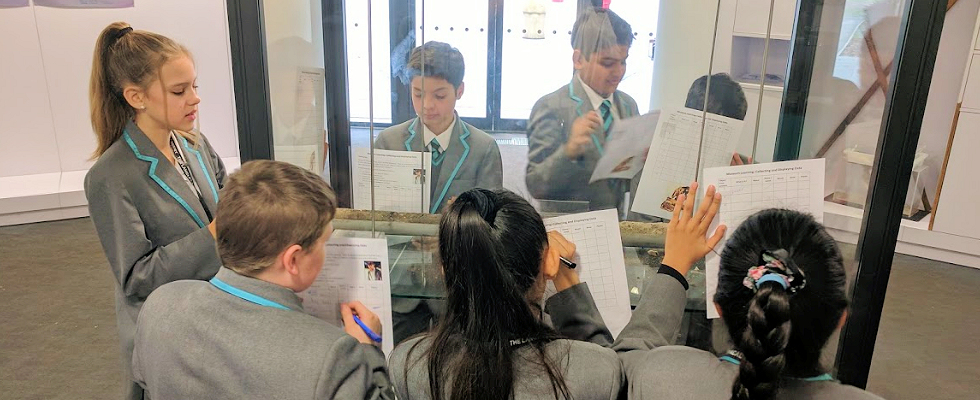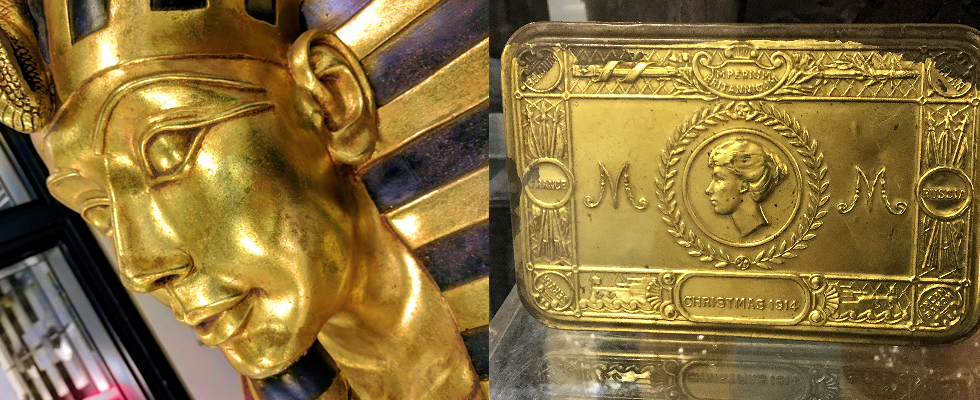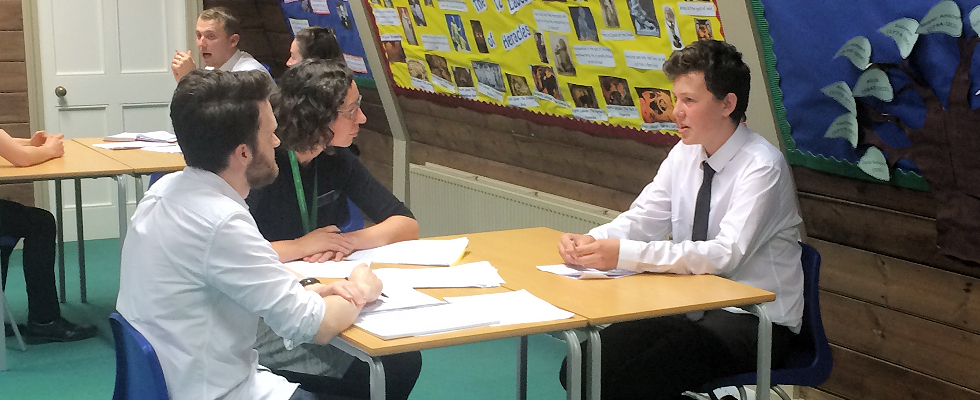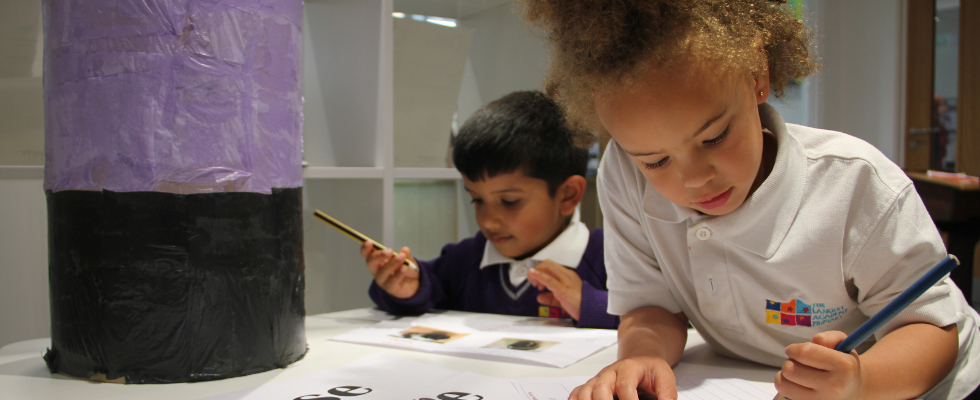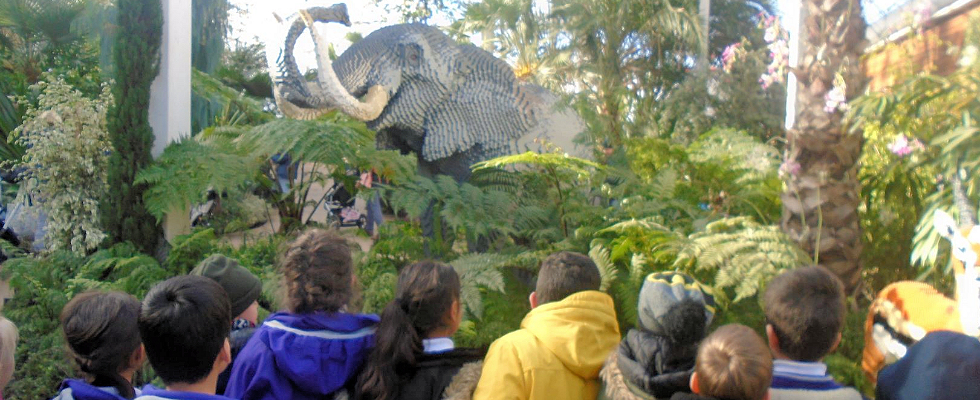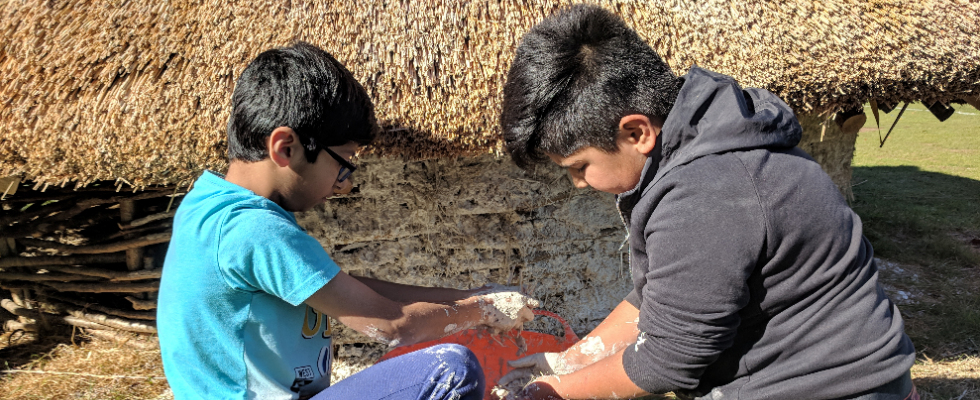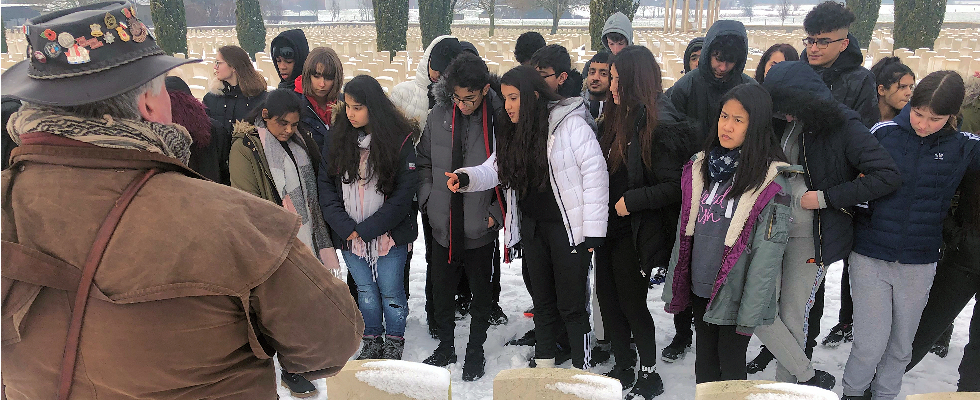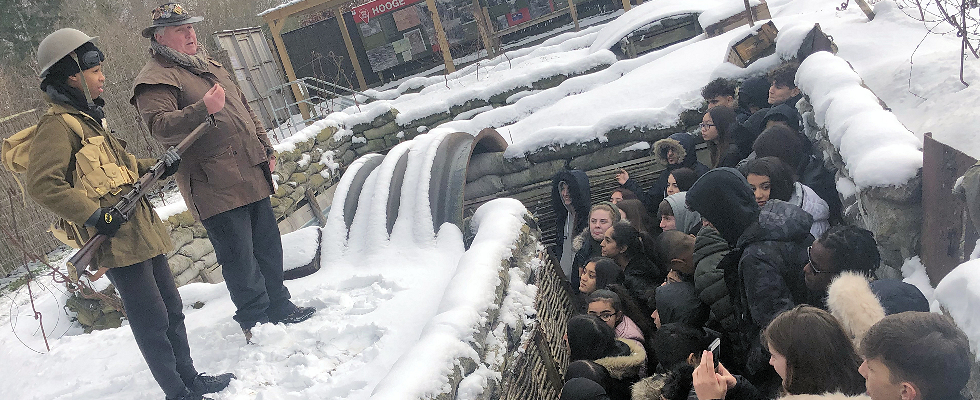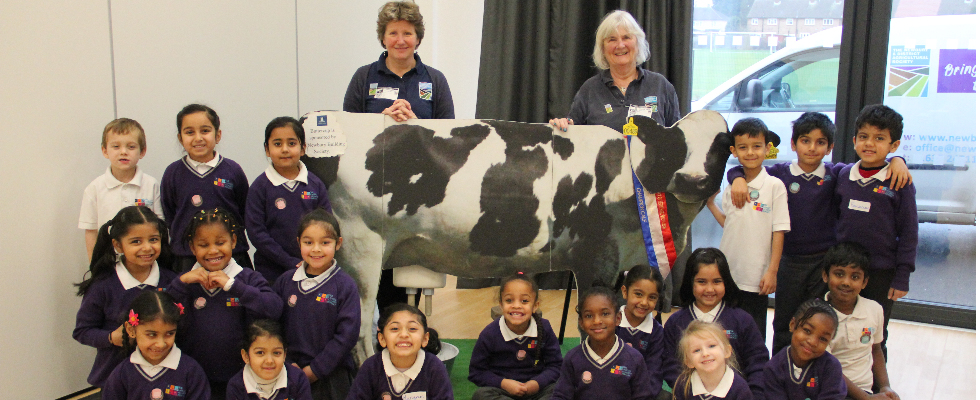![]() What is Museum Learning?
What is Museum Learning?
Museum Learning is about helping students achieve using museums. We define Museum Learning as how we use museum objects, stories, people and skills to inspire teaching and learning.
At The Langley Academy we have pioneered a partnership model where museum learning projects are created together and involve using collections to inspire learning in school, at the museum and beyond.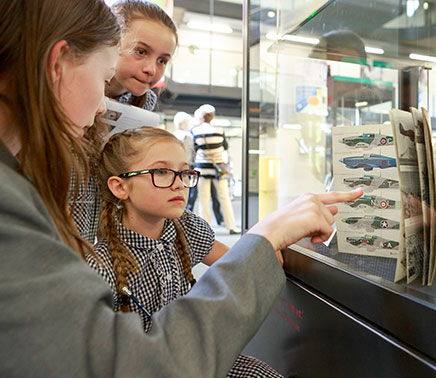

![]() How can museums help?
How can museums help?
We support activity across the curriculum. Teachers often look for projects that will engage students with their subjects in new and exciting ways. They look for real life applications of their subjects, opportunities for students to use their initiative and projects that bring wider context to a topic.
In the Museum Learning team we use an outcome framework developed by Leicester University and popular in the cultural heritage sector. Called the Generic Learning Outcomes, this is a helpful way to think holistically about your projects.
The Generic Learning Outcomes are:
-
Enjoyment, inspiration, creativity (Being surprised, having fun, being moved, thinking or doing something creative...)
-
Knowledge and understanding (Learning new information, connecting ideas, using existing knowledge in a new way…)
-
Skills (Physical skills, problem solving skills, social skills, emotional skills, communication skills…)
-
Attitudes and values (Empathy, tolerance, positive, negative attitudes, opinions about ourselves and others…)
-
Activity, behaviour, progression (Doing something new, change in behaviour, planning to do something differently…) http://www.artscouncil.org.uk/what-we-do/supporting-museums/ilfa/measuring-outcomes/generic-learning-outcomes/
![]() Getting started
Getting started
If you are a member of the Langley Academy Trust you can contact the Museum Learning Team in S1.02 for help in how to get started. We are always happy to talk to teachers from other schools and can be reached on museum@langelyacademy.org.
However, our best advice is for you to get in touch with your local museum. Museum professionals always want to talk to teachers and will often create something bespoke for your students if it helps them learn how better to support young people.
Between 2014 and 2014 we ran a project called Stronger Together where we linked up 11 projects between secondary schools and museums in the Thames Valley area. You can find out more about the project here. Our top tips from this project were:
-
Students needs
Be clear about what the students’ needs are at the start. One tip is to list three specific needs and demonstrate how the project meets them. This will help keep things on track and means you can evaluate impact. Don’t forget there will be unexpected benefits too.
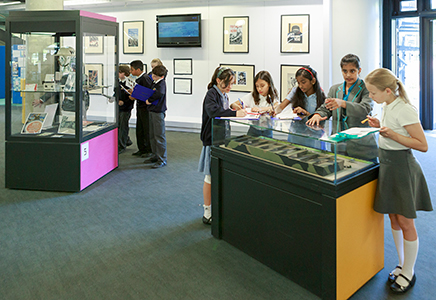
-
Funding
Check your regional Arts Council England museum development programme. The South East Museum Development Programme has information about funds available. There are also programmes covering the South West, South East, North West, North East and Midlands.
Arts Council England list other funders on their website. It is also worth considering ways to spread the cost with mutual support.
-
Management
Manage your project using shared planning and evaluation tools. Clearly setting out your aims and activities will really help you when things get busy. You may find our project management template helpful.
![]() Useful Links
Useful Links
-
My Learning http://www.mylearning.org/
-
Culture 24 http://www.culture24.org.uk
-
Connecting with Culture http://www.connectingwithculture.com

